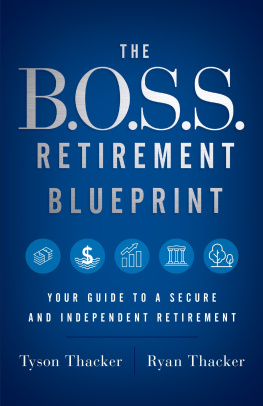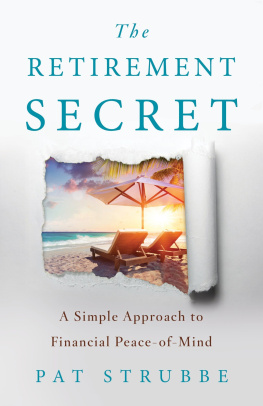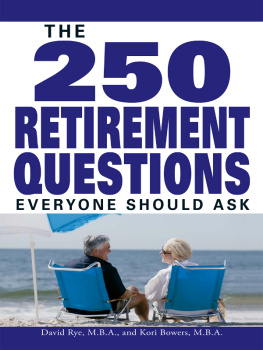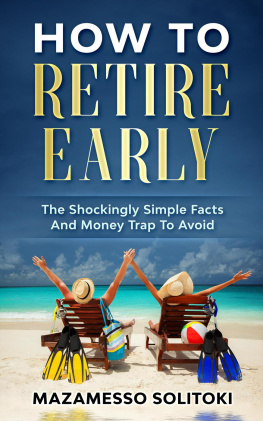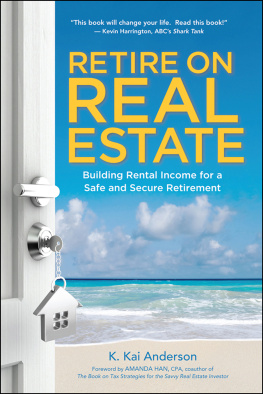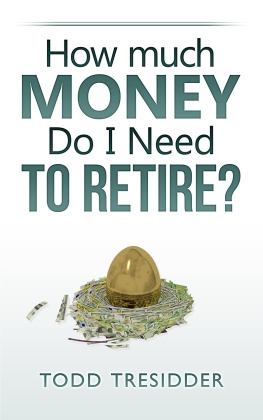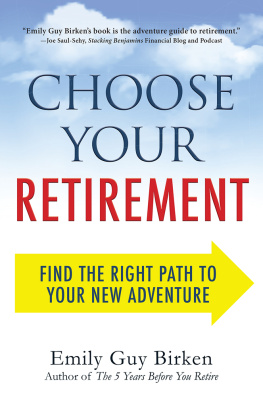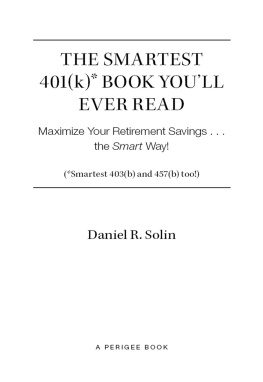Social Security Administration Web site
Choosing when to retire is one of the most important decisions you will make in your lifetime.
The Wall Street Journal, 9/12/04
When you retire, whats your most critical financial decision? Deciding when to claim Social Security retirement benefits has got to be near the top of the list. (After all, for folks age 65 and up, Social Security accounts for 39% of income, far more than any other source.) Yet the media, investment advisors and academics spend precious little time discussing the ins and outs of Social Security, so its hard for seniors to make an informed decision.
The Complete Idiots Guide to Social Security
Decisions you make at retirement can impact your life for 20 to 30 years or more, depending on how long you live in retirement. Dont make the decisions lightly or on the spur of the moment.
Money magazine, 12/3/04
When to take Social Security? Its arguably the most important question retirees face.
Self-help books have tackled most of the important questions in peoples lives: which college to attend, how to choose a mate, what to name the baby. Shelves are filled with books by financial gurus about how to invest in stocks, mutual funds, and real estate, and how to avoid the taxman. But when you get near retirement age, the question is, Should I retire early and take that early retirement check from Social Security? Although it sounds like such a simple question, there is no simple answer, and the experts have surprisingly missed this big question.
When I couldnt find a book or even a good article on this subject, I decided to use my skills and experience to research and solve the Social Security question for you. I worked as a CPA for a national public accounting firm and earned my MBA from a top business school. Currently I am successfully running my own product development business. In my first book, The Ten-Day MBA, I distilled the subjects taught at the nations top business schools into a comprehensible guide that readers can easily use. I am happy to say that hundreds of thousands of readers in over a dozen countries have been productively using The Ten-Day MBA. In this book I will give you the tools that will let you make the best retirement decisions possible. I will walk you through a process of deciding what to do with your Social Security benefits and how to plan for your retirement. Incredibly, some of the authoritative advice from the experts is dead wrong, and it is costing Americans many millions of dollars a year.
In just a few years, the first of an estimated 77 million Baby Boomers will become eligible for benefits and will have to make that decision. A full 32 percent of the workforce has no retirement savings set aside and 80 percent have no private pension. About two thirds of retirees receive 50 percent of their income from Social Security. Today about 20 percent of Social Security recipients rely on their checks as their sole source of income. Taking the Social Security check early at age 62 versus age 65 currently costs recipients 24 percent of their monthly benefits and that penalty is going up to 30 percent. Unexpected taxes and additional penalties can literally take away the rest.
I asked my friends who are financial planners with prestigious national investment firms about early retirement planning, and surprisingly, they dont deal with the issue. They agree they are more focused on savings and investments because that is the way they earn their money. When I started to explain to them the issues involved, they were unaware of the complexities and encouraged me to write this book so that they could better serve their clients.
For some, the early bird does get the worm and the most Social Security benefits by opting to receive early benefits. For others, the patient tortoise wins the race with the greatest payout by waiting until full retirement. Its a $100,000 question. For a couple, it may be a $200,000 question.
A recent survey found that 54 percent of workers are not even aware that the NRA has been raised from 65 to 67. No, its not the National Rifle Association. The Normal Retirement Age is the term used for the age at which you collect full retirement benefits. This confusion about the full retirement age is puzzling, as 72 percent of workers surveyed by the National Council on the Aging said that qualifying for Social Security was their most important reason for the timing of their retirement. FRA is another abbreviation, representing Full Retirement Age, with just the same meaning as NRA, and both are often used interchangeably. This book covers all such acronyms, jargon, and rules that may confuse you.
Although the Social Security Act was signed seventy years ago, in 1935, the early retirement choice began in 1956, when Congress felt that slightly younger wives of 62 should receive benefits at the same time as their 65-year-old husbands. In 1961 legislators erased the discriminatory part of the rule and let both men and women receive early, albeit reduced, benefits at age 62. The decision became much more complicated when in 1983 the full retirement age was gradually increased from age 65 to 67, and benefits also began to be taxed for upper income retirees who chose to continue to work. This courageous, bipartisan move led by President Ronald Reagan risking reelection was supposed to extend the solvency of Social Security by decades because it compensated for increased enrollments and increased benefits. In 1977 President Jimmy Carter and the Congress had also made some heroic changes. They increased the Social Security payroll tax (FICA) from 6.45 percent to 7.65 percent, made changes to the cost of living adjustment formulas, and gradually reduced benefits. Despite these moves for solvency, the situation continues to grow worse because no political courage on either side of the aisle has been mustered in the last twenty years. Therefore, it is reasonable that the solvency of the Social Security system enter into your decision to take benefits sooner rather than later.


